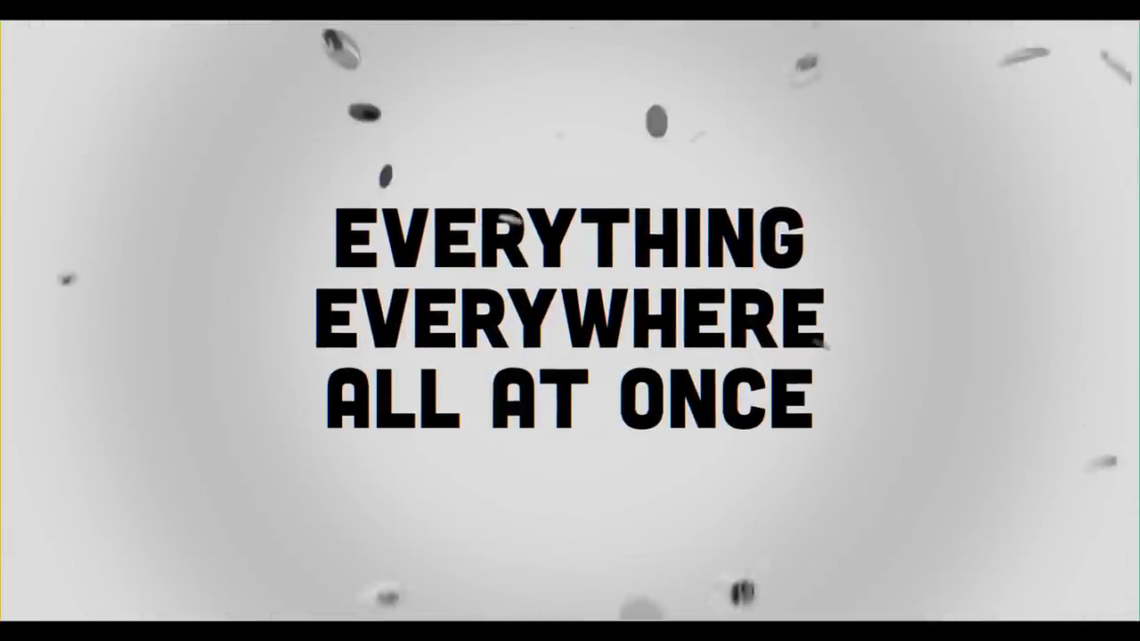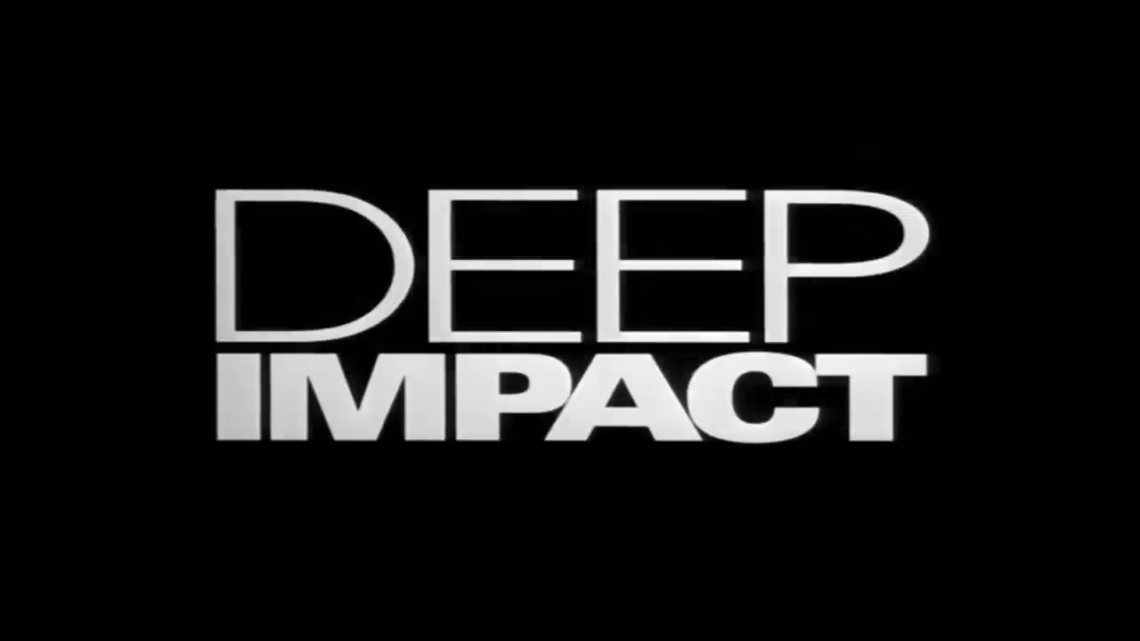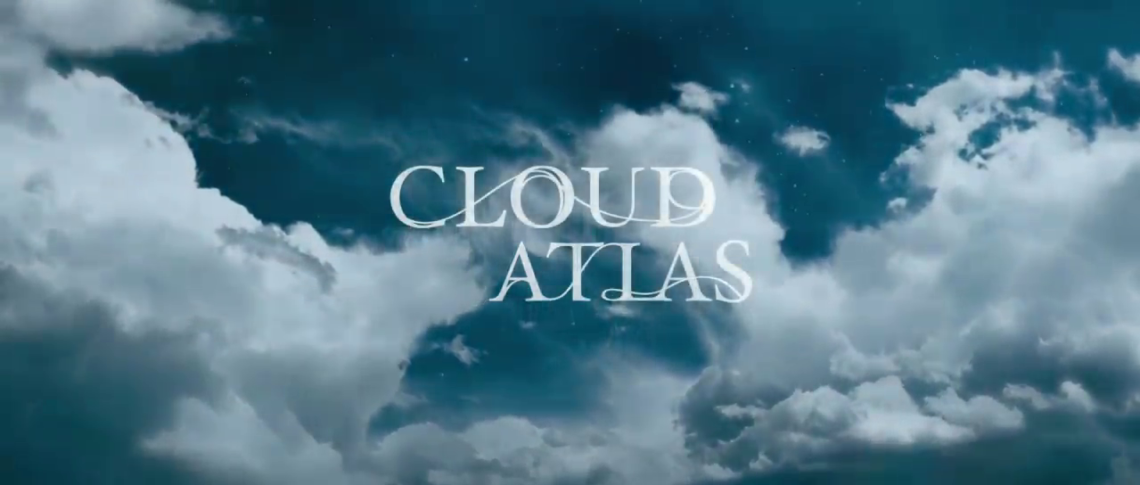-
#582 – Everything, Everywhere, all at Once

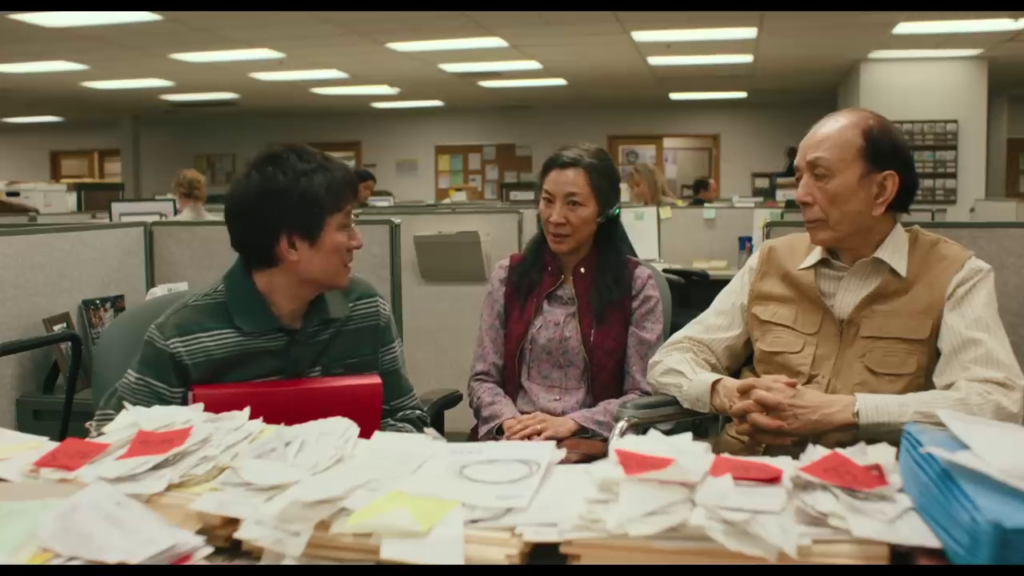
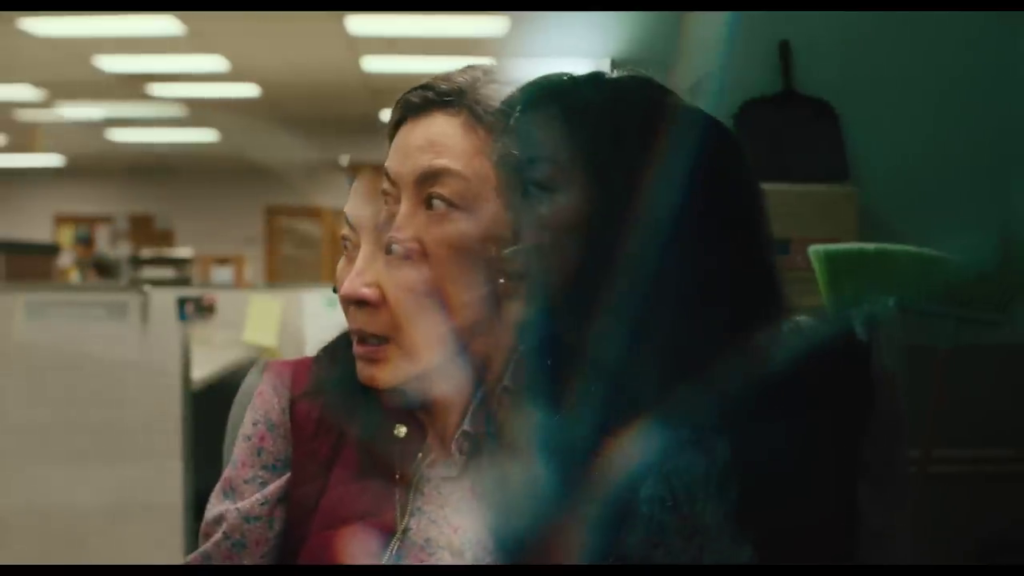
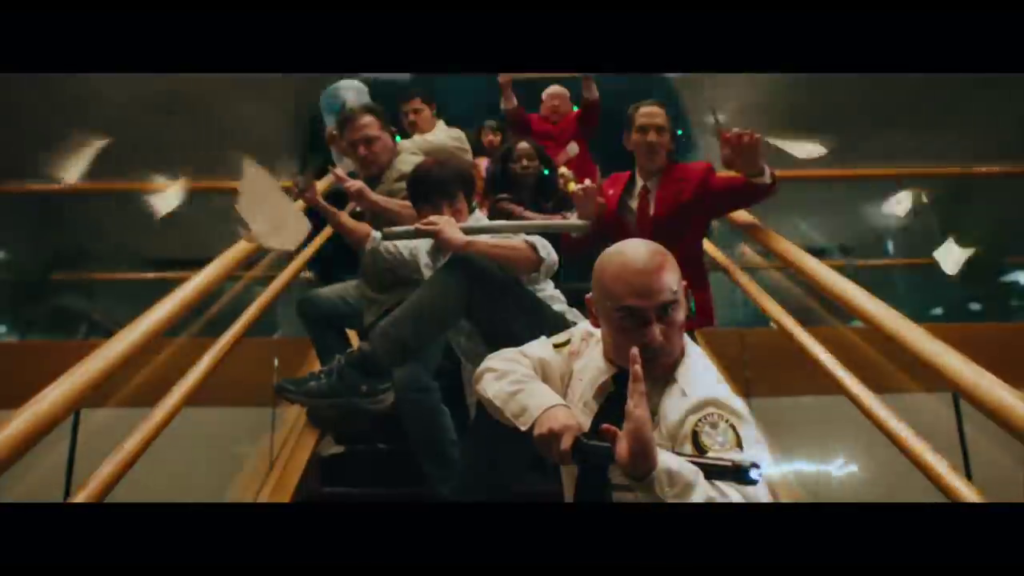
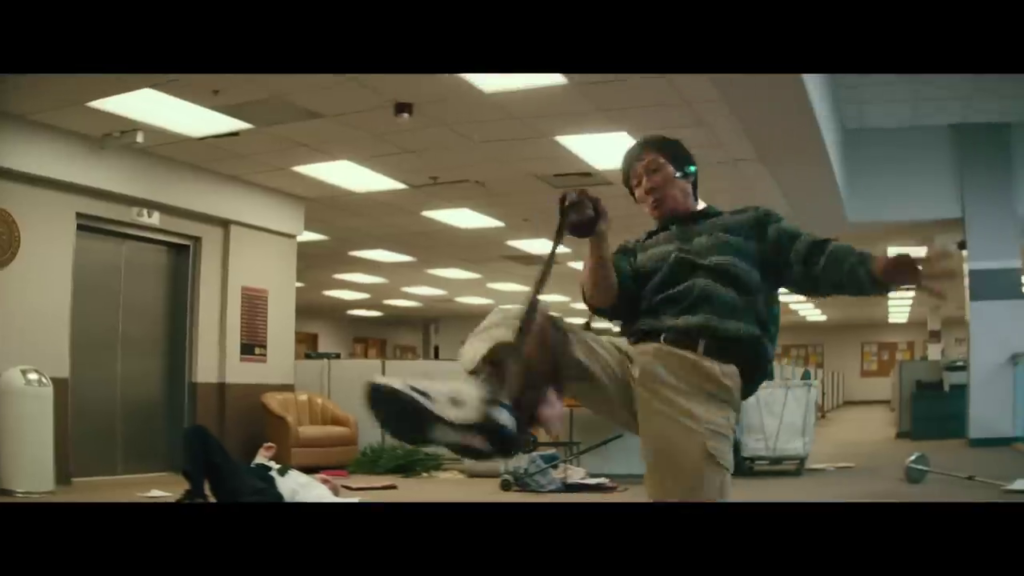
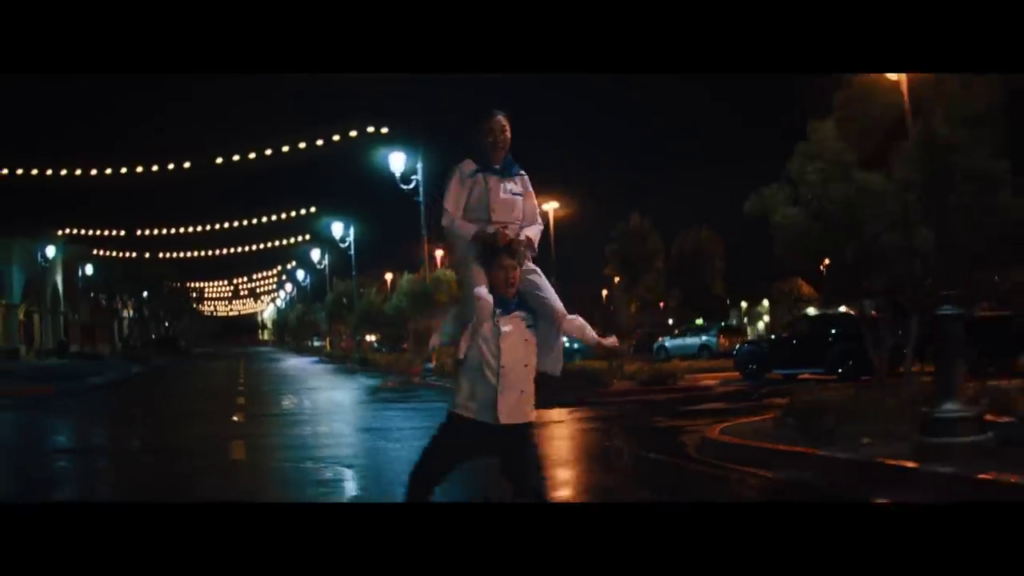

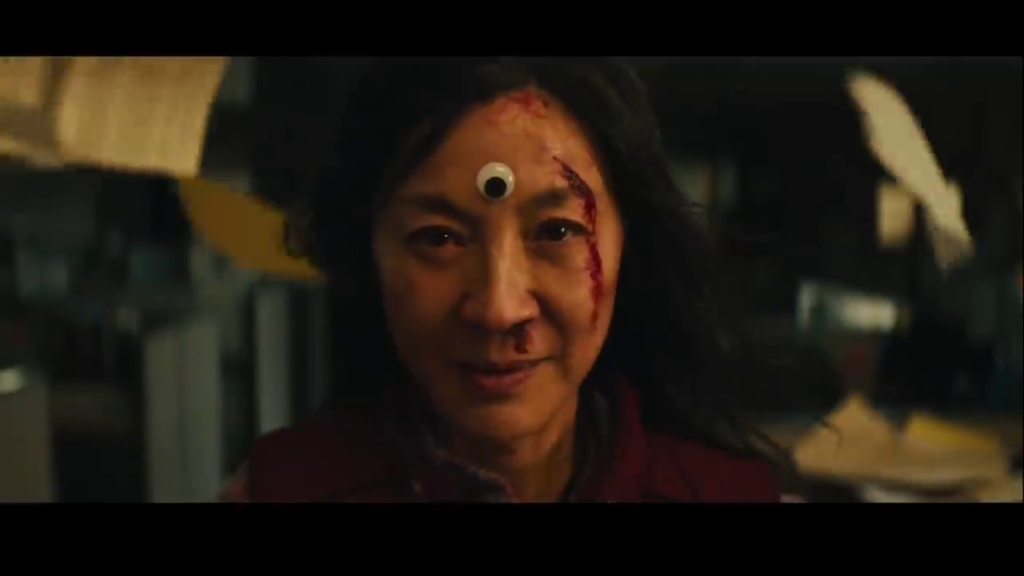
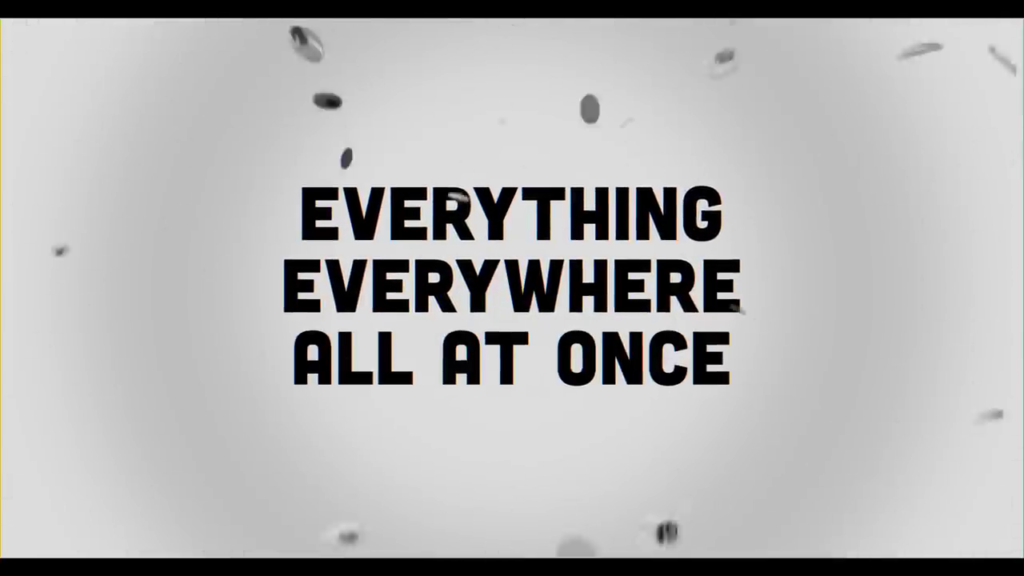
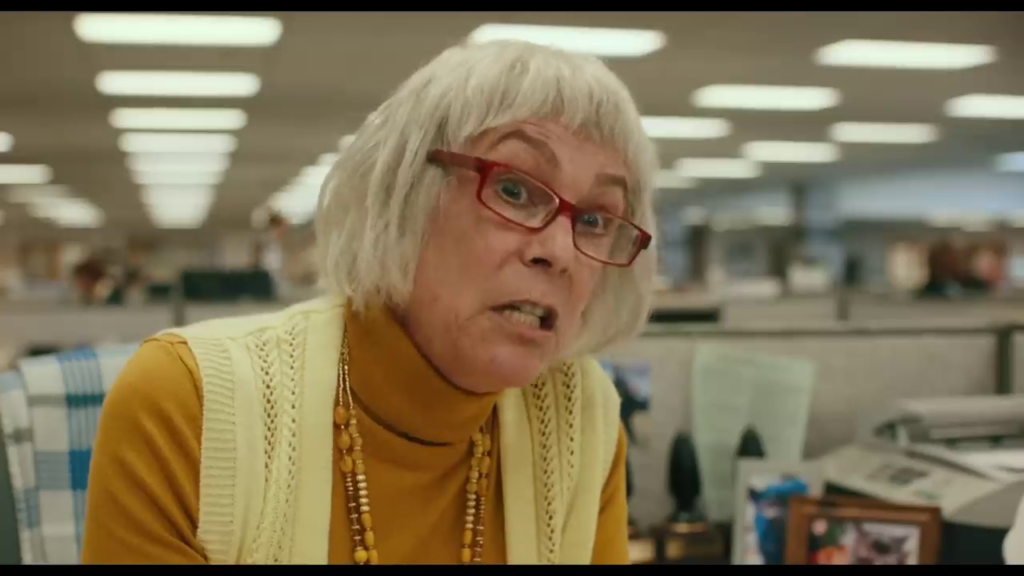
Everything, Everywhere, All at Once (2022)
Film review #582
Director: Daniel Kwan, Daniel Scheinert
SYNOPSIS: Evelyn is an overworked laundromat owner who is preparing for her Father’s visit, an audit by the IRS, among everything else. She is suddenly forced into a battle across the multiverse to save every reality from being destroyed by a nihilistic entity who just so happens to be her daughter…
THOUGHTS/ANALYSIS: Everything, Everywhere, All at Once is a 2002 sci-fi film. The film centres around Evelyn, a laundromat owner who is being audited by the IRS, amongst a host of family issues as well. Evelyn is suddenly pulled into a battle to save the multiverse, and must tap into the possibilities of the different versions of herself to stop an evil entity from destroying everything. Operating on a number of different levels and perspectives, the film is inherently chaotic, and it is designed to be, but has specific themes and relationships that ground the film and provide an entryway into the story. Perhaps a few of these can be boiled down into very typical relationships and problems, but maybe that’s what makes them relatable and meaningful; I think your mileage may vary. Nevertheless, the film has a quick pace and packs a lot into it’s two and half hour runtime. Being a film about the infinite possibilities of existence and jumping between different realities, it would be quite easily to leave a viewer confused, or have the film get bogged down in technical jargon and exposition: fortunately, the film manages to keep its pacing and energy while setting itself up for the viewer, and switching around the different realities and revealing things in a piecemeal fashion help keep the film going.
In terms of characters, Evelyn as a role was made for Michelle Yeoh: it showcases her acting talent across all the different genres and roles she has done over the years. she takes on all the different roles she has to play effortlessly, while also retaining the everyday core of her character that is just trying to manage a business and her family. The rest of the cast too are solid in their roles that are uniquely carved out for them, and are a bit of stability in contrast to Evelyn’s constant flux.
Credit should be given to the writing of the film that balances the right amount of entertainment, drama, action, and emotional moments that are switched between to avoid the film becoming too bogged down in any particular details. The film makes it simple enough to go along for the ride, but also provides some powerful emotional moments that hit when you least expect. The film does wobble a bit near the end, where I don’t think it sets up the climax of the film as such, because the film has had so much energy and motion that you don’t realise that this is where everything is coming to a head, and not just another step somewhere else. The philosophical clash between a humanist existentialism and a nihilistic meaninglessness has some weight to it at the end, but it’s not something explored throughout the film so it feels like you’re getting a pay off from everything you experienced. Part of that is intentional: that out of all the different possibilities and realities, what matters is the seemingly drab one that you inhabit, and because everything is valid (in other universes), then no single one is more meaningful than the other. As mentioned, some of the themes and characters are boiled down to rather simple positions or outlooks by the film’s end, but these are all minor gripes about a film that does so well with so many things, and turns in solid performances from the cast, as well as navigating a host of different themes: keeping things interesting for casual movie-goers, while also not being afraid to delve deeper into heavier subjects when necessary. Overall, Everything, Everywhere, All at Once is a high energy mix of films that nevertheless relies on a careful arrangement of it’s parts so it doesn’t fall into a giant mess. Being able to sustain interest and attention across the runtime thanks to solid performances, fun action scenes, and emotional moments that pull you back in. A few missed beats around pacing and oversimplifying certain positions don’t upset the overall impact of a film that both opens itself to the infinite possibilities of existence, while still making the here and now matter.
-
#581 – Deep Impact (1998)
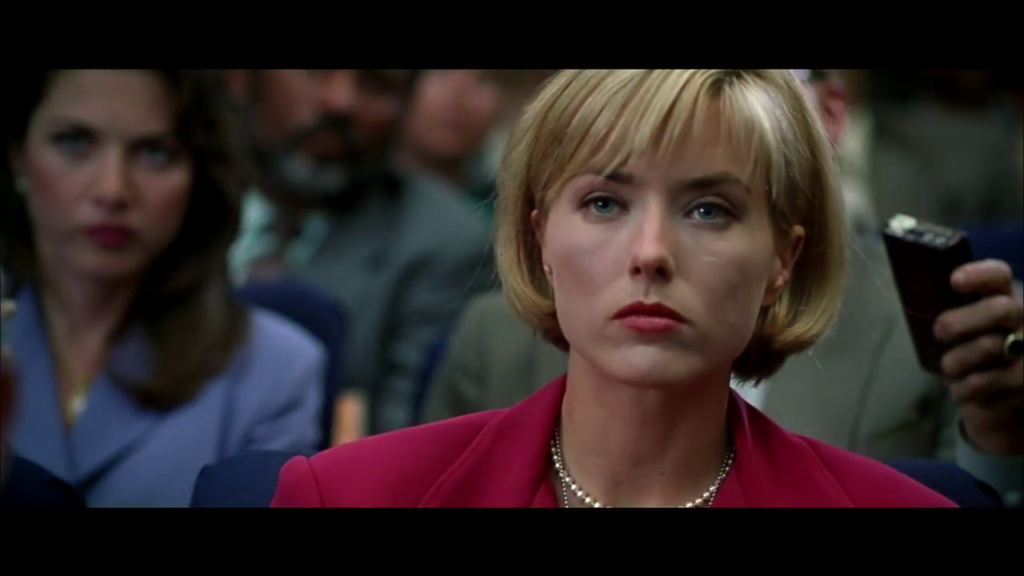
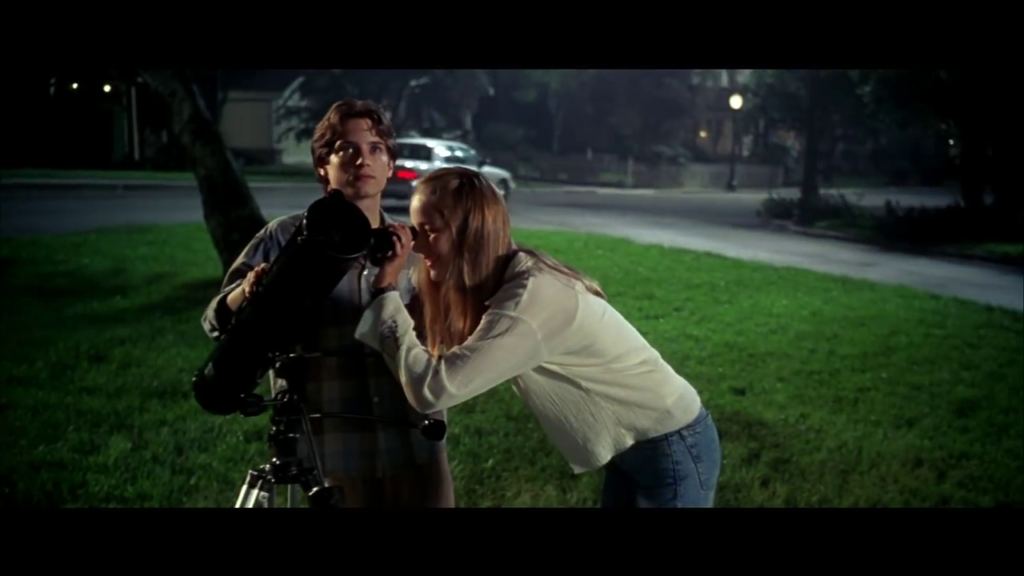
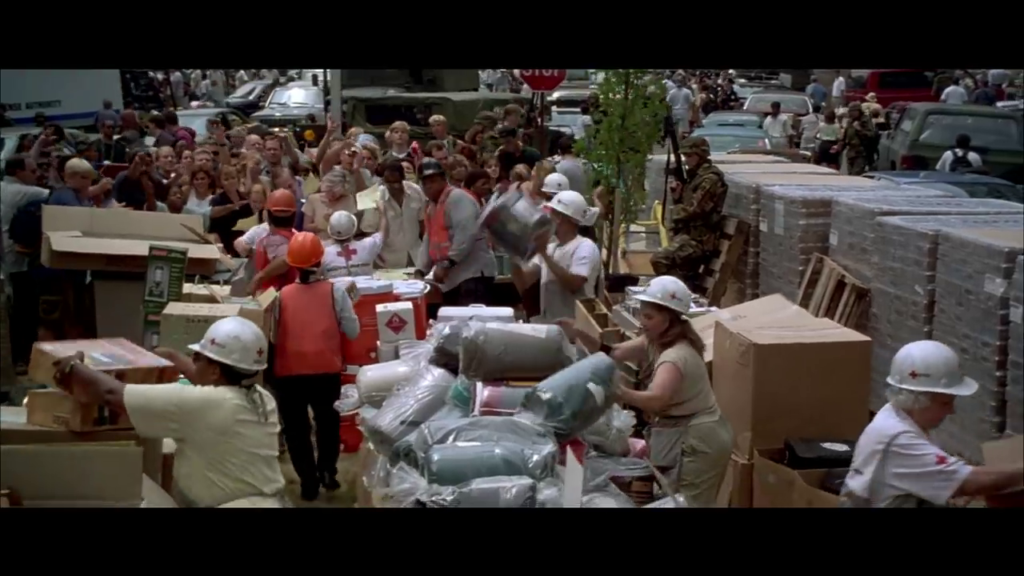
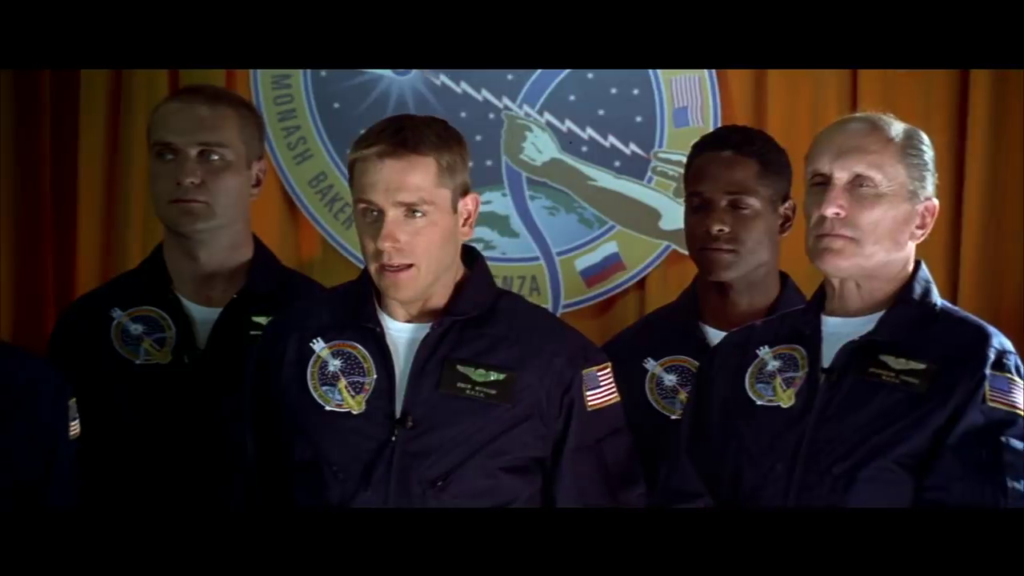
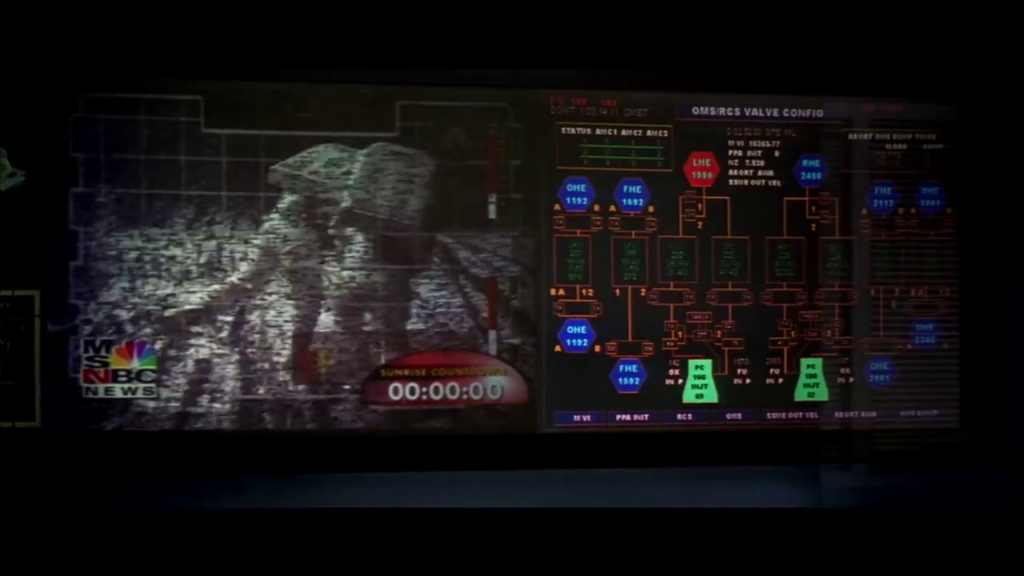
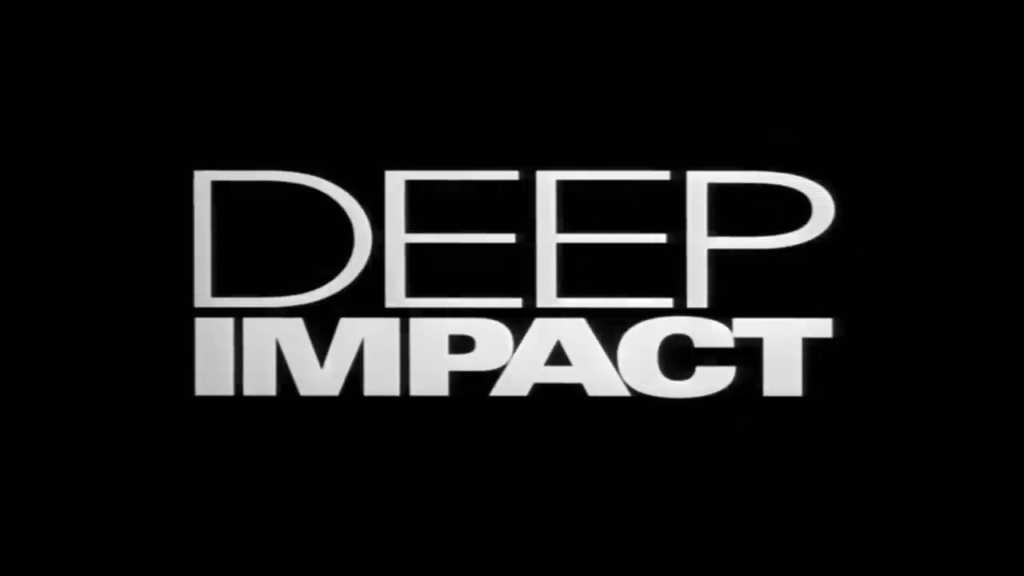
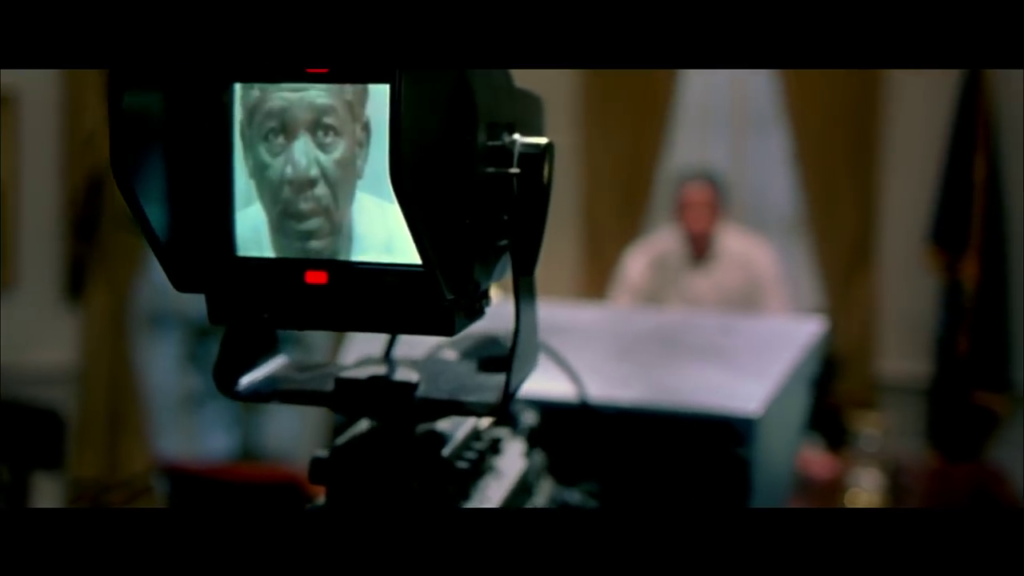
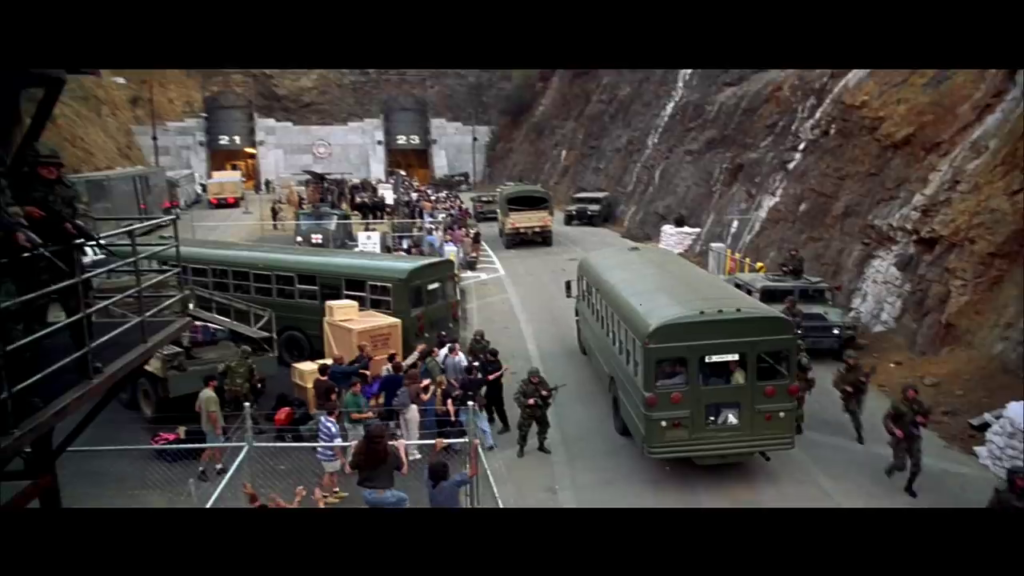
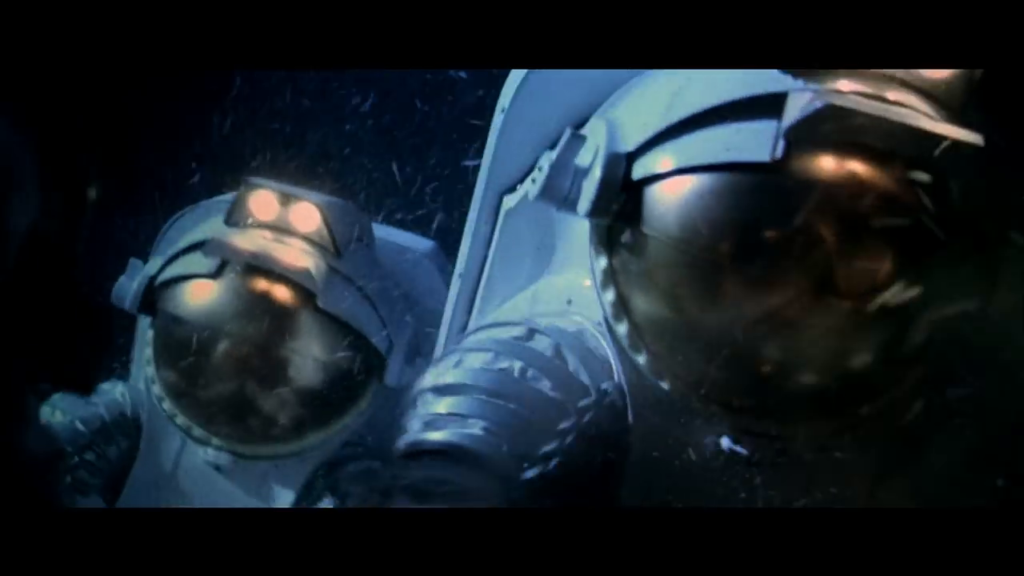
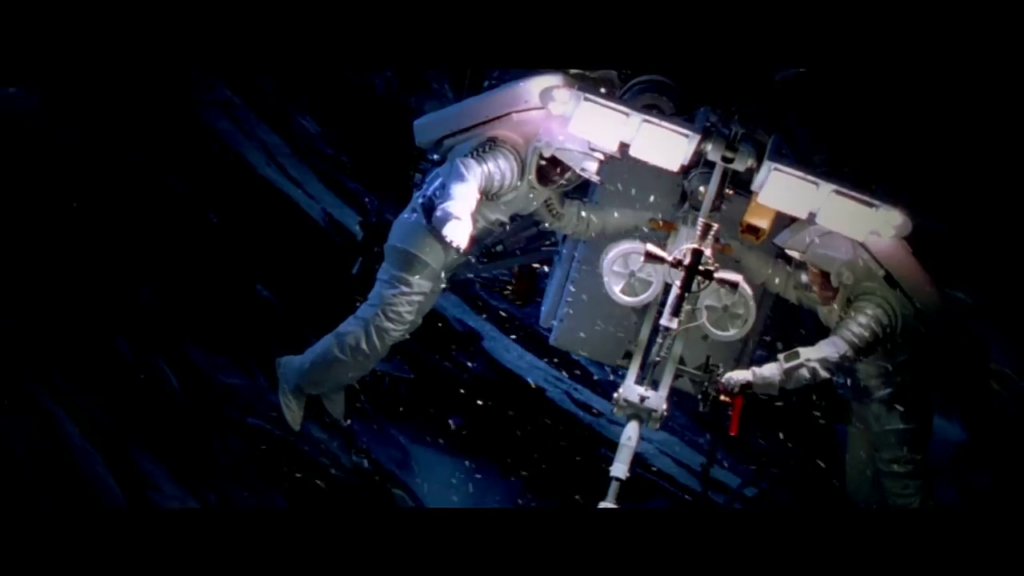
Deep Impact (1998)
Film review #581
Director: Mimi Leder
SYNOPSIS: A reporter who is investigating the resignation of the Secretary of Defence stumbles on a much bigger story than she expected, and forces a public announcement from the President: A large comet is due to collide with the Earth and cause huge destruction. While a last-hope mission to the comet is being prepared, there are also plans to make sure humanity survives if the comet actually makes it to the planet…
THOUGHTS/ANALYSIS: Deep Impact is a 1988 sci-fi disaster film. It is perhaps most notable for being released in the same timeframe as Armageddon, a similar disaster film also about a comet heading for Earth. The two have slightly different angles and tone though as we shall see. The film opens up with journalist Jenny Lerner investigating the resignation of the Secretary of Defense. this leads to her discovering (inadvertently) that there is an Extinction Level Event threatening the planet, which forces the President to disclose to the world that a comet is on a collision course with Earth. It’s a fairly typical disaster film after that, with the film focusing on a mission to try and destroy the comet, and also balancing that with the human stories of the characters caught up in it. This film, more so than Armageddon, focuses on the latter, with the different characters roles and responses to the impending catastrophe being the primary focus. The main issue with this, however, is that it focuses on human drama, and it chooses the most boring of said drama to show us. The main character is constantly awful: the way she treats her dad for no real reason is childish and nasty, and even when she does something good and heroic, the way she does it hardly redeems her. probably the most interesting thing about the film is the space mission that is sent to destroy the comet, which provides a decent amount of action, but their mission ends half way through, and then their whole story arc just becomes irrelevant until the finale. In fact, the film pretty much runs out of steam at the halfway point, and just gives up at the same time that the characters give up trying to stop the comet. The film mentions a lottery that will choose the people that will be allowed to survive the impact, but doesn’t really explore the impact of this, and the usual riots and breakdown of society which usually occurs in these types of disaster films apparently just does not happen, or at least we never see on screen, which is odd to just gloss over, even if it’s something we expect and have seen many times before.
Apart from the main character, the rest of the cast are similarly uninteresting. The weirdest ones are the teenage couple who constantly act like they’re a middle aged couple. They get split up but then reunite later in a pointless diversion, and their whole characters just feel off. you could easily cut them out of the film and lose nothing. The crew aboard the “Messiah” spacecraft likewise don’t have that much development or interesting things happens to them on a character development level. Another aspect of the film that I thought was odd is the focus on journalism and the media at a time of catastrophe. I get it in part, because the main character is a reporter, but nearly everything is done through the media and TV stations, and the film feels like it wants to “glorify” the role of the media and journalism in times of disaster and it being almost the centre of importance, which just feels a bit…wrong and dirty in some way. Maybe the film had to emphasise the significance of the media because it got the rights to use the MSNBC likeness for the backdrop, but either way, it made the film feel like it was focusing on the wrong things, and if the film wanted to focus on the “human” element of catastrophe, then doing it through the lens of the media just obfuscates that.
There are some moments in the film which are decent: the comet striking Earth and the destruction scenes are well done, and it gets some of the emotional scenes right, but these often have no impact on the characters themselves. The science is a bit more accurate than a film like Armageddon, but I’m not sure how much that would matter to the average film-watcher.
-
#580 – Cloud Atlas (2012)
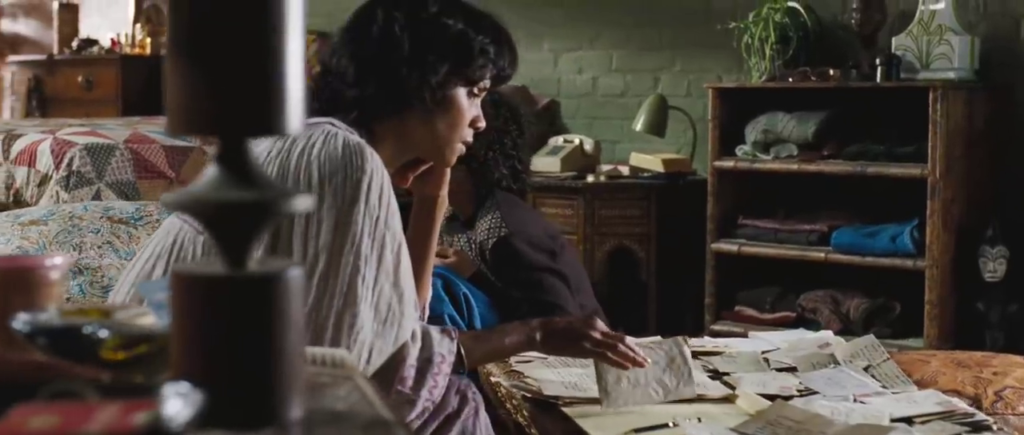
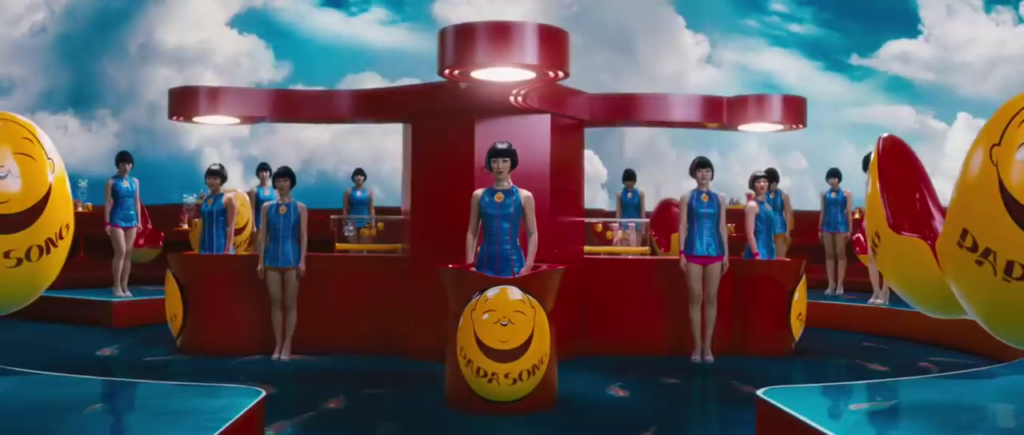

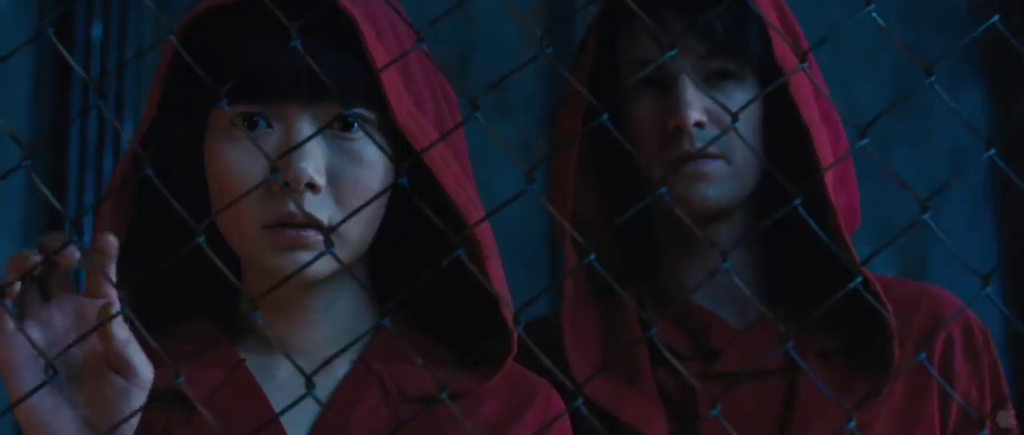

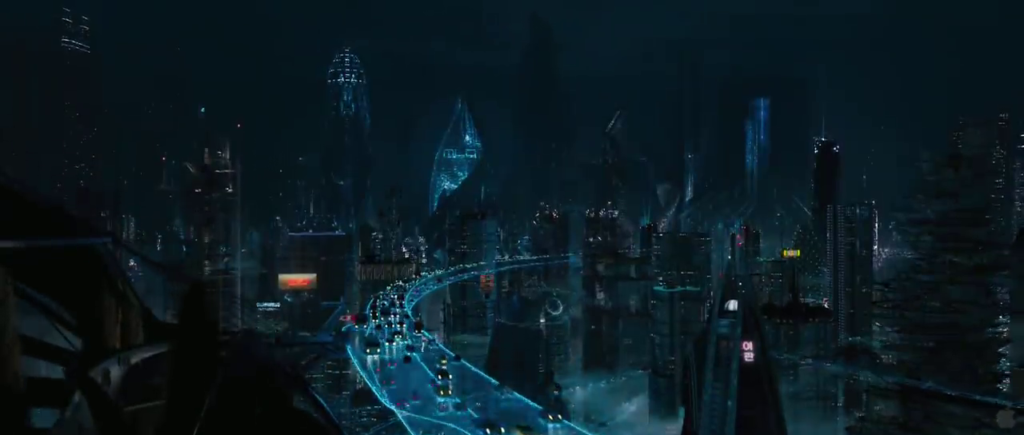
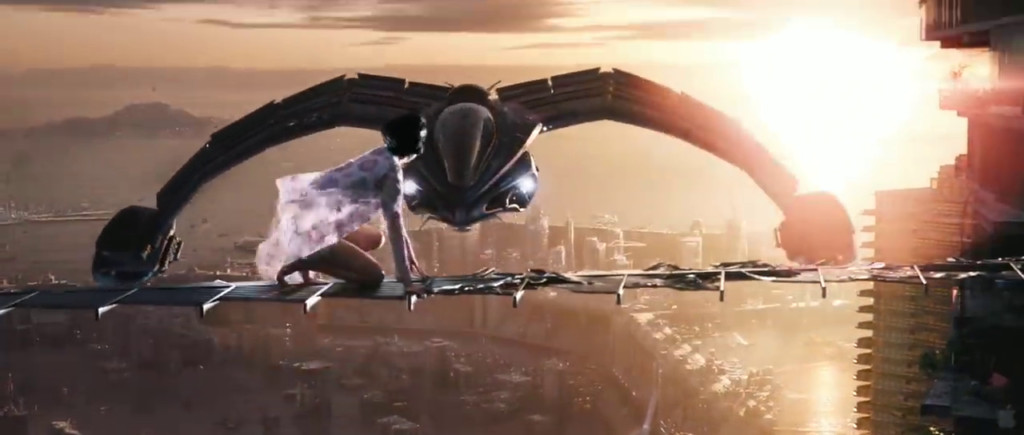
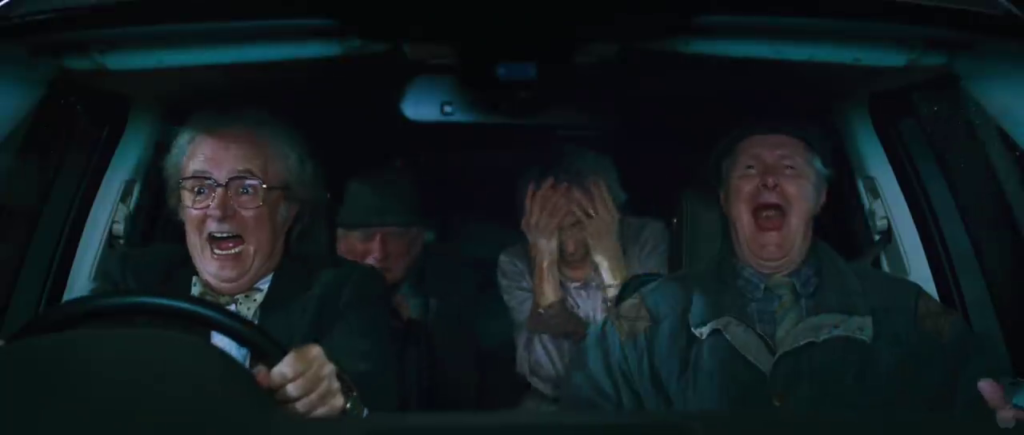
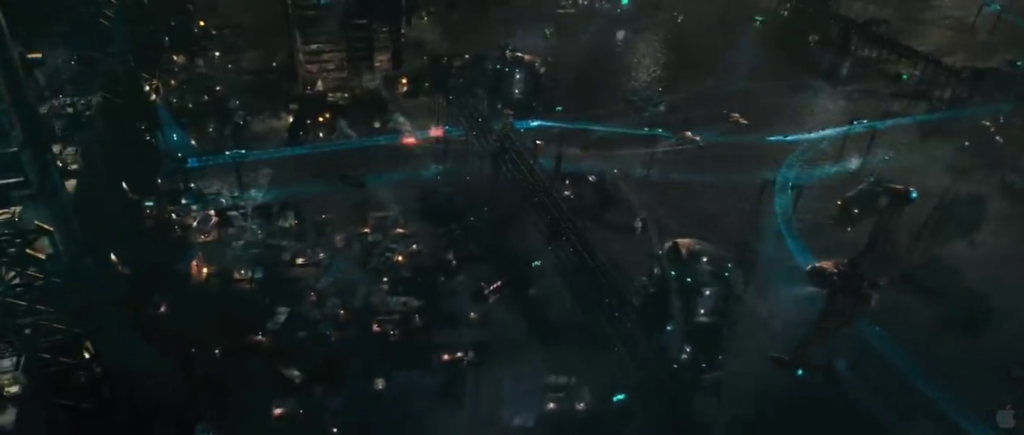
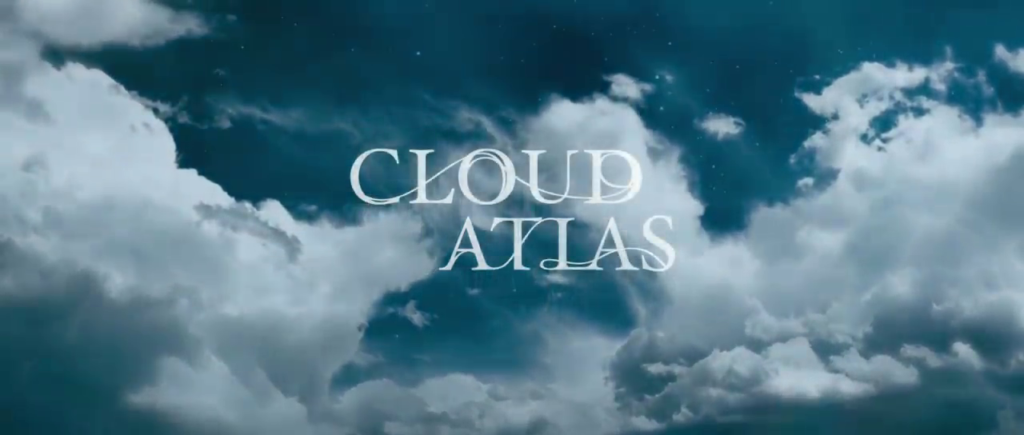
Cloud Atlas (2012)
Film review #580
Directors: Lana Wachowski, Tom Tykwer, Lily Wachowski
SYNOPSIS: The interconnected lives of strangers intersect across multiple lives over the course of 500 years…
THOUGHTS/ANALYSIS: Cloud Atlas is a 2012 sci-fi epic film based on the novel of the same name. It’s difficult to give a summary of the plot because the film centres on six different settings over the course of five hundred years, with different stories in each time. The characters in each era are played by the same actors throughout, which hints at the idea of reincarnation, perhaps symbolised by a birthmark that many of the characters have, but this is left up to interpretation: in fact, a lot of this film is left up to interpretation. I imagine multiple viewings will reveal new things and connections which are easily missed the first time. While this can be a positive, I think the film thematically needed something more to bring things together. The film ends with a somewhat weak message that doesn’t feel like much of a payoff after sitting through nearly three hours. While it is a long runtime, I don’t think there’s any lulls in the film thanks to the constant switching between the different characters and stories, but it’s difficult to say what you’re supposed to take away from it all.
The host of different characters and time spans obviously provides plenty of variety in the film: some have stronger stories than others, and some are very predictable. The film is definitely helped by having some top acting talent, such as Tom Hanks and Halle Berry, and the massive budget this film had (one of the most expensive independent films of all time) allows for lots of different on-location shots, so at least in that respect you can get the “epic” sense of the film. This film seems to have a polarising response from people, ranging from it being a really good film, to it being one of the worst, and it is easy to see the reasons for both perspectives. The film has plenty of ambition and variety, and meanders through its different stories in such a way that they are all balanced well throughout the long runtime. However, the editing may also leave viewers feeling like they are wandering aimlessly around with no real purpose. The things which are supposed to tie the film together: the strange birthmark across generations that suggest some form of reincarnation, the writings of a philosopher oft-quoted, and such, don’t really provide any overarching themes to bring things together. If this is a film that is meant to be viewed multiple times, then that is a problem, as I do not feel like this would be worth a re-watch for me. There’s plenty of ambition and a lot of skill in editing this all together, but the things which are supposed to tie it all together just don’t have the required impact.
-
#579 – Miami Connection (1987)
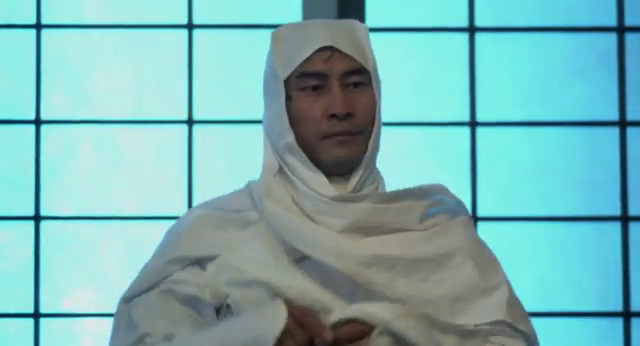
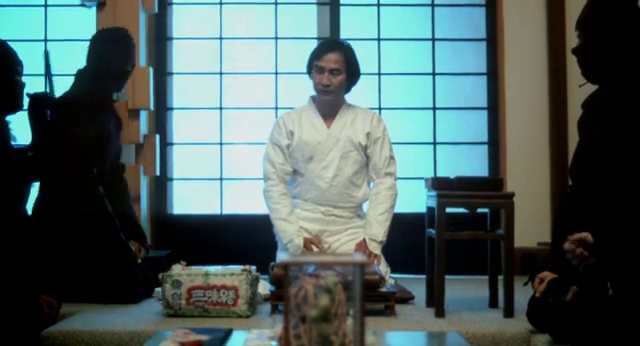
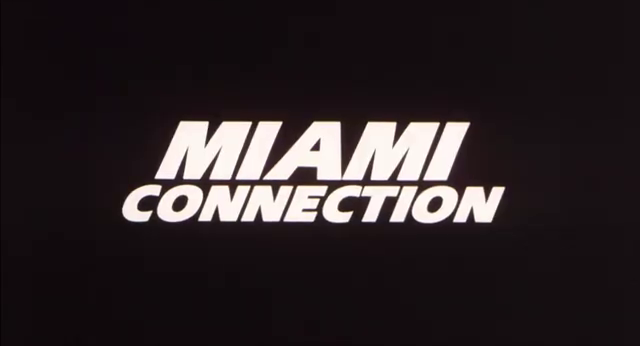
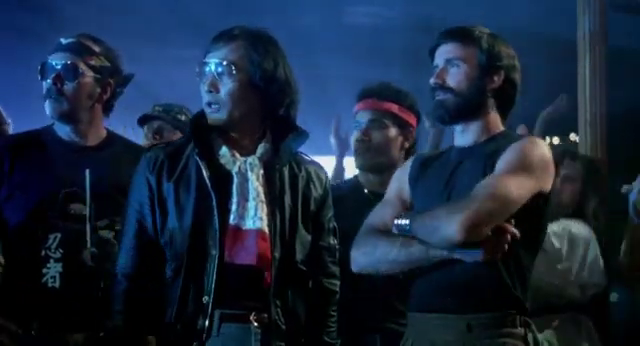
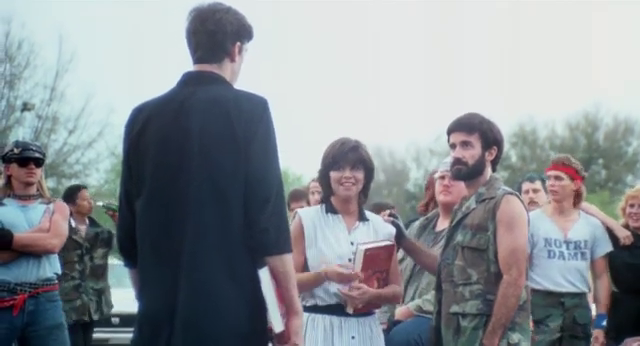
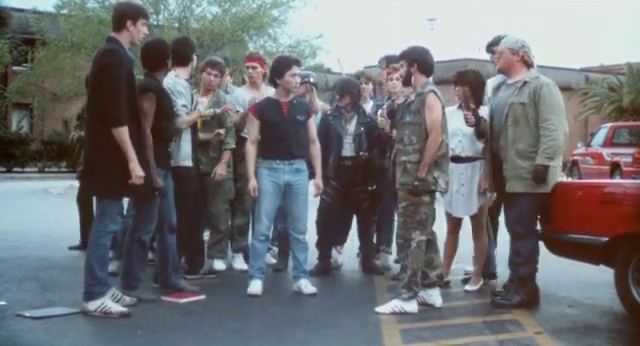
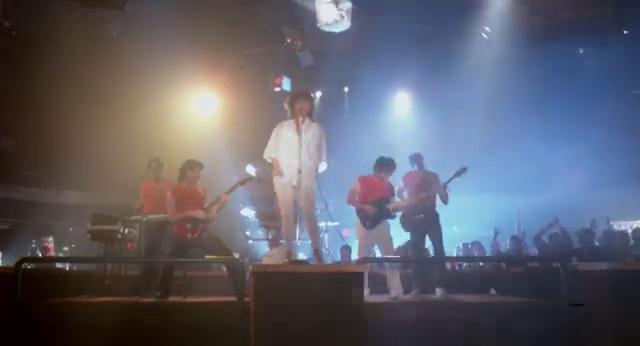
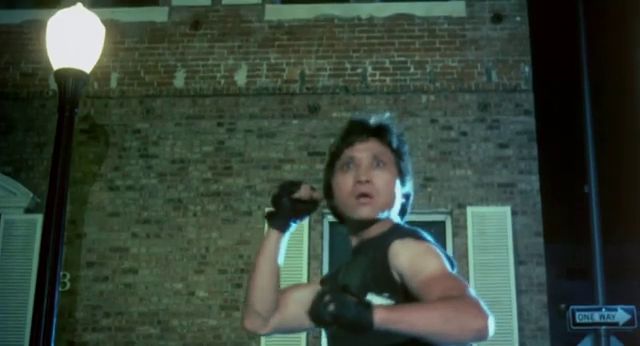
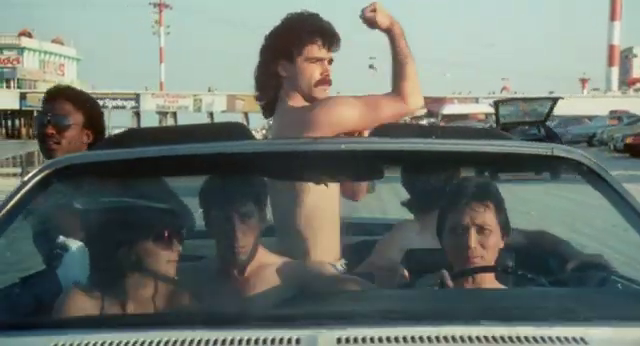

Miami Connection (1987)
Film review #579
Director: Richard Park, Y.K. Kim
SYNOPSIS: A drug deal in Miami is intercepted by a gang of motorcycle riding ninjas. Meanwhile, the Sister of one of the ninjas has joined the band “Dragon Soul,” and her brother disapproves, leading to a lot of martial arts fighting between just about everyone on the streets of Miami.
THOUGHTS/ANALYSIS: Miami Connection is a 1987 martial arts film. The film opens up with a drug deal being intercepted by a gang of motorcycle riding ninjas: just in case you’re wondering what kind of film you’re about to experience. The plot of the film is no less bizarre, as it revolves around a band named Dragon Soul, whose members are orphans and best friends, and learn taekwondo with their mentor and fellow bandmember Mark, played by Y.K. Kim, who co-directed, produced, wrote, and nearly bankrupted himself to get this film made. There isn’t really much of an overarching story here, other than everyone in Miami just wants to pick a fight with the band for one reason or another, so they usually have to fight their way out. There’s a plot concerning one of the bandmembers finding his biological Father as well, but nothing really leads to anything or goes anywhere. There’s a message about the band wanting to travel over the world spreading peace and love or something, but that seems rather drowned out by the mass fighting on the streets they get involved in every ten minutes or so.
Despite all the woeful dialogue, bad acting, and lack of any real story, there is something very charming and enjoyable about this film: its cheesy and nonsensical, but it’s always entertaining as you never quite know what it is going to attempt next. It is a “so bad it’s good” film, and earnestly one of the best. You can tell Kim was deeply passionate about making this film and spreading a message about Taekwondo and brotherhood, but he had absolutely no experience making films in any capacity, and the fact that he had complete control over this film shows. There’s nothing mean-spirited or any sense of a cash-grab, and the good intentions of the filmmaker shine through.
I think it’s safe to say you won’t see anything else like Miami Connection: it exists in its own universe of 80’s martial arts action and music that, while makes no sense and lacks any kind of filmmaking knowledge, still manages to make a cinematic event that’s still authentic and chaotic enough to make it entertaining, and worthwhile to watch. It’s really not the kind of film you can sum up and review, and perhaps that makes it a bit of essential cinema.
